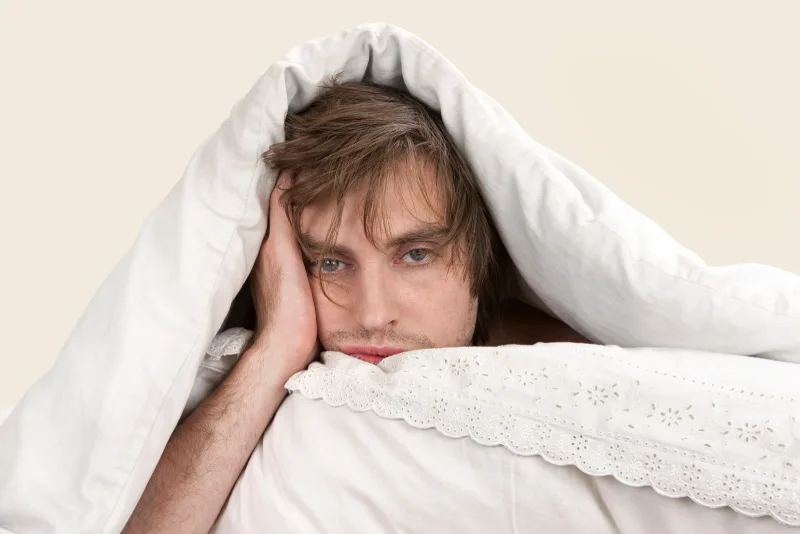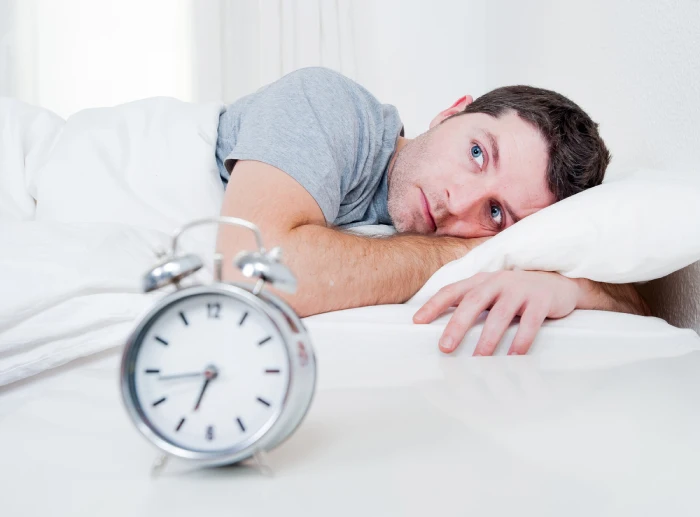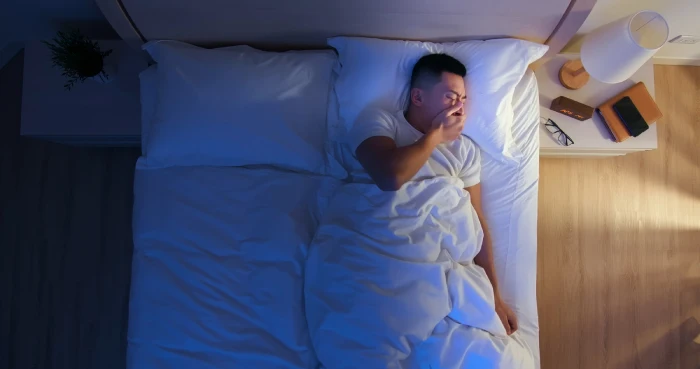Do you find yourself unable to fall asleep even when you’re absolutely knackered? Are you tossing and turning in bed, wondering why you’re unable to get a good night’s sleep? Believe it or not, there are several reasons why you can’t sleep at night, even when you are tired.
The struggle to sleep can result from various factors such as stress and anxiety, poor sleep habits, medical conditions, poor diet and exercise, caffeine and alcohol consumption, electronic devices, and environmental factors.
Today we will take a closer look at the above factors and provide practical solutions to help you get a good night’s rest.
Explanation of Why You Can’t Sleep Even When Tired and What to Do About It
Having difficulty sleeping, even when overtired, is a frustrating and prevalent problem that countless people experience. Numerous factors, including stress, anxiety, and poor sleep hygiene, can contribute to this issue. Here are some of the most common causes and solutions.
No 01: Stress and Anxiety
If you are feeling anxious or stressed, it can keep your mind racing and make it difficult to fall asleep. This is because anxiety triggers the release of stress hormones that cause physical and mental tension, making it difficult to relax.
Moreover, the constant worry and negative thinking associated with anxiety can also keep your mind preoccupied and make it harder to drift off to sleep. This is why many people with anxiety often suffer from insomnia.
If you wish to overcome this issue, you can engage in relaxation exercises before going to sleep, for instance, mindfulness exercises, yoga, and meditation. These techniques are designed to relax the mind and body, reducing the levels of stress hormones and promoting deep relaxation.
Another effective technique is to write down your worries before bedtime to help clear your mind. This can help you acknowledge your concerns and prevent them from keeping you up at night.
If these practices are not helpful, you can take Diazepam 10mg tablet. It is a benzodiazepine that helps reduce anxiety and induce sleep. It should be taken as prescribed by your doctor and only when necessary.
No 02: Poor Sleep Habits
You may have difficulty falling asleep when tired if you have poor sleep habits. This is because irregular sleep schedules, daytime napping, or electronic device use before bed will disrupt the sleep-wake cycle of your body.
This leads to confusion and irregularity in the brain’s sleep signals, making falling and staying asleep harder.
To establish a consistent and healthy sleep pattern, it is essential to maintain a regular bedtime and wake-up schedule on a daily basis, including weekends. Avoid daytime napping and turn off electronic devices at least an hour before bed to let the brain wind down naturally.
Invest in comfortable sleep accessories like quality mattresses, pillows, and blankets to optimize your sleep environment.
No 03: Medical Conditions
Certain medical conditions, such as sleep apnea, restless leg syndrome, or chronic pain, make it hard to fall asleep and stay asleep. These conditions affect the body’s capability to relax and sleep deeply, leading to frequent interruptions and daytime sleepiness.
To address these problems, it is essential to consult a doctor or sleep specialist to diagnose and treat the underlying medical conditions. Medications or other therapies may sometimes be prescribed to help alleviate pain and promote healthy sleep patterns.
No 04: Poor Diet and Exercise
Lack of exercise or a poor diet can make falling asleep and staying asleep difficult. Consuming high amounts of sugar or caffeine can also disrupt your sleep quality, as these substances interfere with the body’s ability to relax and remain asleep.
Adopting a balanced diet that includes foods rich in sleep-supporting nutrients, such as magnesium and tryptophan, is essential to promote healthy sleep patterns. Also, exercising regularly can reduce stress and promote deeper, more restful sleep, provided it is done several hours before bedtime.
No 05: Caffeine or Alcohol Consumption
You may not be able to fall or stay asleep if you consume caffeine or alcohol just before bedtime, even if you are tired. This is because both caffeine and alcohol affect your ability to relax and sleep, leading to frequent interruptions and shallower sleep.
To avoid this problem, it is recommended to limit caffeine and alcohol consumption, especially before bedtime. Decaf or herbal tea in the evening can be a great alternative to caffeine-rich beverages, while avoiding alcohol within a few hours of bed can aid in better sleep.
No 06: Electronic Devices
Devices such as smartphones, tablets, and laptops interfere with the body’s sleep cycle by suppressing melatonin production. This makes it harder for the brain to identify when it’s time to sleep, leading to difficulty falling and staying asleep.
Also, the stimulating effect of social media or other activities on these devices can keep the mind active and prevent relaxation.
To combat the negative effects of electronic devices, avoiding using them for at least an hour before bedtime is essential.
Alternatively, using blue-light blocking glasses or enabling the “night mode” feature can reduce the amount of blue light emitted by the screen. This can help regulate the body’s internal clock and make it easier to fall asleep.
No 07: Environmental Factors
Even when you’re tired, you may find it difficult to fall asleep because of environmental factors like noise or temperature. Loud noises and uncomfortable room temperatures can disrupt your sleep patterns, making it harder for you to sleep.
To optimize your sleep environment, it is recommended to make your sleep space quiet, dark, and cool. Use earplugs, an eye mask, or a white noise machine to block distractions.
Also, invest in a good quality mattress, pillows, and blankets that will help keep you comfortable throughout the night.
Prioritize Sleep for a Healthier Lifestyle and a Better You
Various internal and external factors can prevent you from getting a good night’s sleep. Stress and anxiety, medical conditions, poor sleep habits, poor diet and exercise, electronic devices, caffeine and alcohol consumption, and environmental factors all play a role.
But the good news is that most of these factors are manageable. If you try to reduce these factors one by one, your sleep quality improves significantly.
Sleeping well benefits your overall health and well-being, so prioritize and adjust for a healthier lifestyle. Just a few adjustments in your sleep habits could be the key to getting better, more restful sleep.




